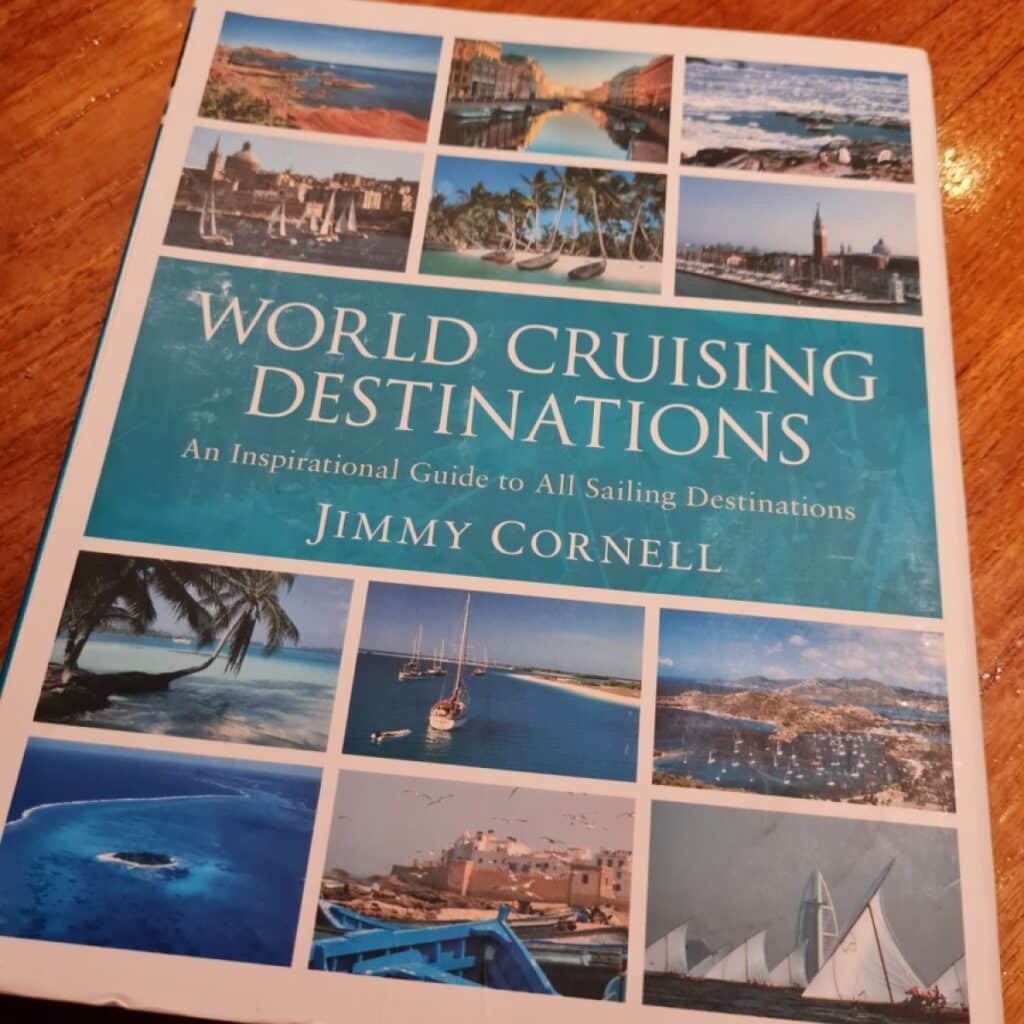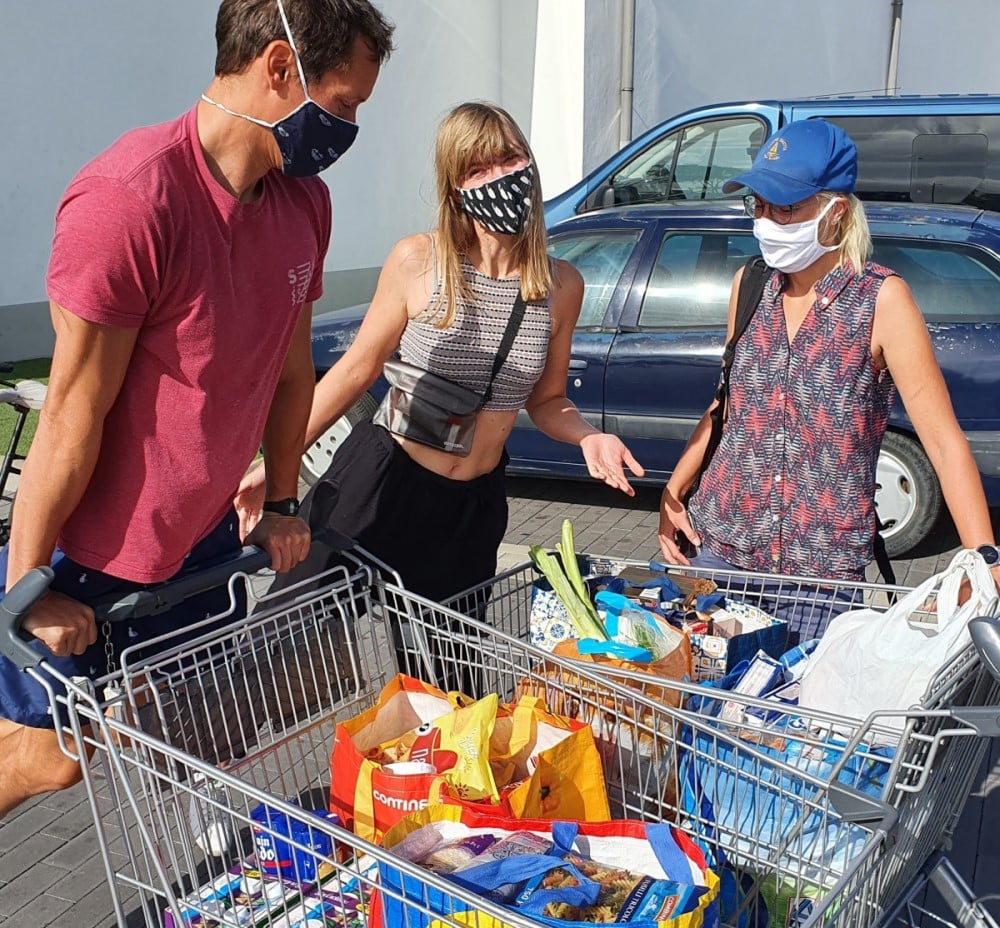Preparing to cross the Atlantic Ocean
Crossing the Atlantic Ocean sounds like a massive thing to do. Not as massive as crossing the Pacific , but still: massive! And at the same time if feels like something we are ‘just’ doing. I think this is because it has been part of our life for such a long time now, and we know and see so many people do it, that it almost becomes normal. I say almost, because I don’t think it will every feel as a very normal thing to do.
So how do you prepare for a trip like that? Our preparation started years ago, when we (and by we I mean mostly Miguel), started to watch videos of sailors crossing and reading books about the right conditions, where to go and what you need.
What do we need?

Since going on our trip our boat is ready. At the moment our wind vane and wind generator aren’t working like we want them to work, but with our auto pilot and solar panels we can manage. What we need most at this moment is food. And provisioning for a ocean crossing is (for me) such a big task that I will dedicate a whole blog post on it, later!
Crew
Even before leaving our trip, we spoke about having people on board. We love having people around, so why not share our trip with them! There are enough people who would love to join an ocean crossing, but it is very hard to plan when you have a job, a family and now with Covid-19 around.
We can not give people our exact leaving date, we can not be sure where we are going to land and we can not be sure how long it will take to arrive, so flexibility is needed.
Besides loving having people on board, we have realized we do not love longer passages. We find them very, very tiring. We do know that a longer crossing is different then 4 days at sea. On shorter passages (specially on a coastline or the North Sea) it can be very busy with other yachts, fishing boats, fishing bouys and commercial ships around, which means you need to be on a (almost) constant look out. This is different then crossing the ocean: you might not see other boats for days. Which means you still need to check what is happening around you, but it is (so they say) less tiring.
All this to say: we have always said that of we find the right people that want to join, we will definitely take them! We had plans to do the crossing together with Max and Kathi from @sailing.makani, but in the end it did not work out. I am planning to write more about this in a blog about having crew on board. We talked about trying to find other people to join us, but made the decision not to do this. It will be challenging to go together, it will be scary, but we are also very excited!
When do we go?
The best time to cross the Atlantic Ocean is between November and February. We want to be in the Carribean before New Years Eve, so we will leave soon, we hope the 5th of December. Yes, it is almost happening!
Where do we go?

This question is a bit harder to answer, we are not sure yet and we find it very hard to decide. The initial plan was to go to the south of the Carribean, then sail north, visit the islands, before crossing to Panama, to prepare for the Pasific Ocean. But with all the money we have had to spent on equipment, we are not sure this scenario is realistic anymore.
What also doesn’t help is that you need to do a Covid-19 test for most of the islands. This doesn’t make it very appealing to visit a lot of islands, due to the costs. Choosing 2 or 3 and stay there a bit longer seems like a better plan at the moment.
For now Barbados, Greneda and St. Lucia are on our list, and we will make a decision soon! Just keep following us, and you’ll find out what we decide!
Practical

We do what we can to prepare, but you can only prepare based on what you know or can imagine. And I can imagine there are lots of things we are going to discover, what we haven’t thought about.
But we have thought about:
Water use: our watertank is small, about 260 liters. We do carry bottled water with us and we have a water maker. We are very careful with water use: doing dishes with salt water and only rinsing with fresh water, salty shower and only rising with fresh water (or not), not opening the tab fully, using the hand pomp, never leave the water running when you are not needing it.
Garbage: before storing groceries away we take off as much packaging as we can. Biodegradable waste will go over board, plastic we’ll cut in little pieces so it takes up less space. We’ll clean empty cans so it won’t stink up the place.
Diesel: we hope not to run the engine a lot, but we will leave with a full tank and 4×20 liter jerrycans.
Shifts: we will do shifts on board. During the day they will be 6 hours, during the night 4. And we will change this if we have to.
Food: we will prepare dinners for the first couple of days. After that we have to cook, which we do following a rota.
Power: our solar panels must keep our power up. Although our wind generator is very loud and we need to get a new structure to hold it up, we can use it, and we will if we are running low on power. We charge our electronics only if needed and during sun hours. If we are running out of power, we will turn the engine on to fill the batteries, but we hope it doesn’t have to come to that.
I am sure I am forgetting things. I am sure we will have to figure things out on the way. But I am also sure we have done all the preparations we can think of and we are ready to set of!! Well, I mean almost ready, we need to do another grocery run, since we are running low only chocolate again…

06 December 2020 @ 14:20
I am getting excited for you and cant wait for the next blog.
Fingers crossed for a trouble free trip.
Dont take chances
Chris
06 December 2020 @ 14:23
I am getting excited for you and cant wait for the next blog.
Fingers crossed for a trouble free trip.
Dont take chances
Chris.